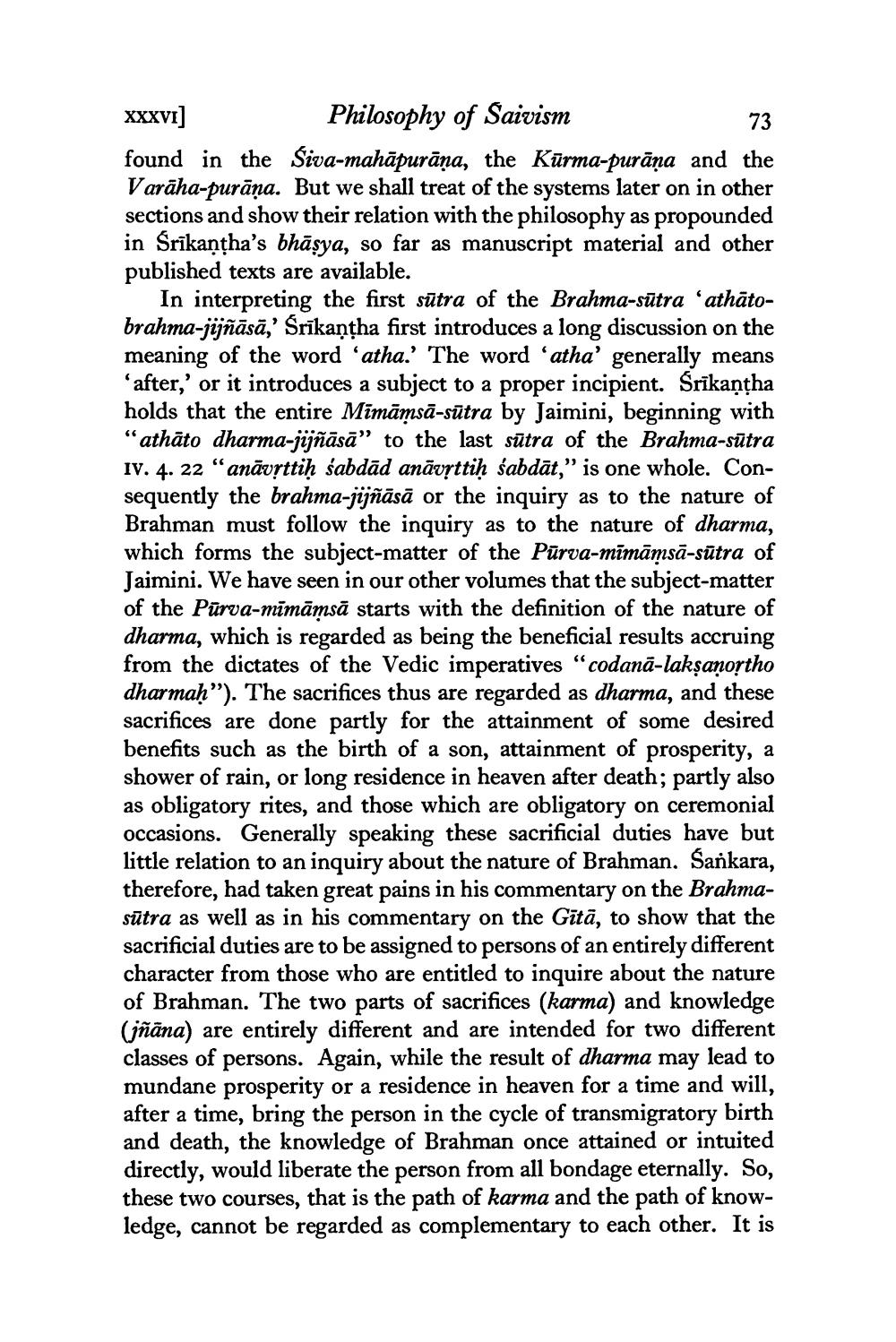________________
73
XXXVI]
Philosophy of Saivism found in the Siva-mahāpurāna, the Kūrma-purāņa and the Varāha-purāņa. But we shall treat of the systems later on in other sections and show their relation with the philosophy as propounded in Śrīkantha's bhāsya, so far as manuscript material and other published texts are available.
In interpreting the first sūtra of the Brahma-sūtra 'athātobrahma-jijñāsā,' Śrīkantha first introduces a long discussion on the meaning of the word 'atha. The word 'atha' generally means
after,' or it introduces a subject to a proper incipient. Srikantha holds that the entire Mīmāmsā-sūtra by Jaimini, beginning with “athāto dharma-jijñāsā" to the last sūtra of the Brahma-sūtra IV. 4. 22 “anāvịttiḥ śabdād anāvrttiḥ śabdāt,” is one whole. Consequently the brahma-jijñāsā or the inquiry as to the nature of Brahman must follow the inquiry as to the nature of dharma, which forms the subject-matter of the Pūrva-mīmāmsā-sūtra of Jaimini. We have seen in our other volumes that the subject-matter of the Pūrva-mimāmsā starts with the definition of the nature of dharma, which is regarded as being the beneficial results accruing from the dictates of the Vedic imperatives "codanā-lakṣaṇortho dharmaḥ”). The sacrifices thus are regarded as dharma, and these sacrifices are done partly for the attainment of some desired benefits such as the birth of a son, attainment of prosperity, a shower of rain, or long residence in heaven after death; partly also as obligatory rites, and those which are obligatory on ceremonial occasions. Generally speaking these sacrificial duties have but little relation to an inquiry about the nature of Brahman. Sankara, therefore, had taken great pains in his commentary on the Brahmasūtra as well as in his commentary on the Gītā, to show that the sacrificial duties are to be assigned to persons of an entirely different character from those who are entitled to inquire about the nature of Brahman. The two parts of sacrifices (karma) and knowledge (jñāna) are entirely different and are intended for two different classes of persons. Again, while the result of dharma may lead to mundane prosperity or a residence in heaven for a time and will, after a time, bring the person in the cycle of transmigratory birth and death, the knowledge of Brahman once attained or intuited directly, would liberate the person from all bondage eternally. So, these two courses, that is the path of karma and the path of knowledge, cannot be regarded as complementary to each other. It is




